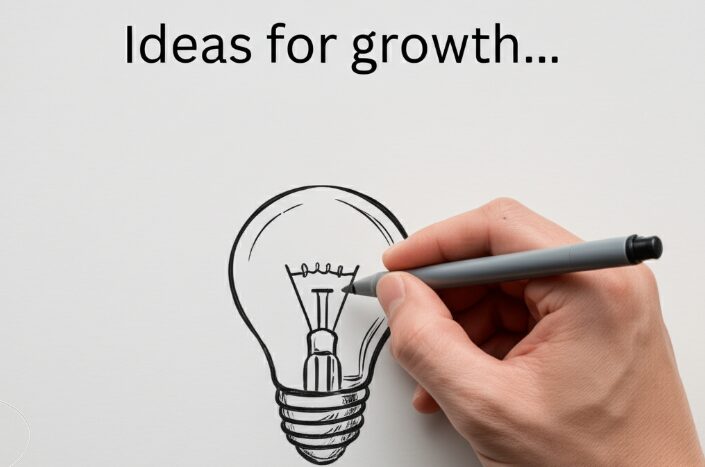Five Key Shifts Expected by Experts

July 6, 2025 – Artificial intelligence is poised for a transformative decade, with industry experts forecasting profound impacts across daily life, business operations, and the global economy. Five major shifts are widely anticipated by 2035, ranging from ubiquitous AI integration and multimodal systems to a significant economic reordering and targeted industry breakthroughs.
At the forefront of these predictions is the expected ubiquitous integration of AI, leading to the rise of “AI teammates.” This means AI will move beyond simple tools to become embedded partners in both personal and professional spheres. Experts anticipate these AI entities will reliably perform complex tasks, from managing customer inquiries and supply chains to automating administrative work, thereby freeing human workers for more creative and high-value endeavors. MindsDB, for example, discusses the emergence of “AI Teammates” across business functions, aiming to free up human time and boost creativity, while Forbes highlights AI’s evolution into a strategic partner providing real-time insights and automating complex processes (MindsDB, 2025; Forbes, 2025).
The next decade will also see multimodal AI systems emerge as the dominant paradigm. Moving beyond single-data-type processing, these advanced AI models will seamlessly integrate and understand information from text, images, audio, and video. IBM predicts that multimodal AI will be “thoroughly tested and refined by 2034,” integrating various data types for more intuitive human-computer interactions, powering advanced virtual assistants and chatbots (IBM, 2024). TELUS Digital further emphasizes that multimodal AI “mimics a human approach to understanding the world,” leading to more nuanced and accurate outputs (TELUS Digital, 2025).
Further fueling this transformation is the democratization of AI and easier model creation. Non-experts will gain unprecedented access to AI development, driven by user-friendly platforms and cloud-based services. IBM forecasts a future where AI becomes “even more integrated into personal and professional spheres, driven by user-friendly platforms that allow nonexperts to use AI for business, individual tasks, research and creative projects,” including no-code/low-code platforms and Auto-ML tools (IBM, 2024). Intellias reinforces this, defining democratizing AI as “more accessibility to AI tools and technologies by non-experts” through intuitive interfaces (Intellias, 2025).
The economic implications of this AI surge are substantial. Experts project a significant economic impact and a transformation of the global job market. Holistic Data Solutions, citing PwC, estimates AI could contribute up to $15.7 trillion to global GDP by 2030. They also note the IMF’s projection of 40% of jobs being affected by AI, leading to both displacement in some sectors and the creation of new AI-centric roles such as prompt engineers and AI ethics specialists (Holistic Data Solutions, 2025). Netguru similarly projects AI to add $4.4 trillion to the global economy and affect over 40% of jobs globally, with a surge in demand for STEM roles (Netguru, 2025).
Accelerated advancements are expected within specific industries, most notably healthcare, manufacturing, and finance. In healthcare, AI is poised to revolutionize diagnostics, personalize medicine, and enable proactive health management. Netguru predicts 75% of diagnostic processes to be automated by 2028, significantly improving accuracy. The European Commission also highlights AI’s potential to optimize healthcare resource allocation and streamline administrative tasks (Netguru, 2025; European Commission – Public Health, 2025). In manufacturing, AI is expected to optimize production, inventory management, and efficiency, contributing significantly to economic value (Netguru, 2025). The financial services sector will see AI augment trading decisions, analyze vast datasets for market patterns, and remove emotional biases, with AI-driven insights projected to influence approximately 90% of all trading decisions by 2030 (Netguru, 2025).
As AI continues its rapid evolution, these anticipated shifts promise to redefine industries, economies, and the very nature of work over the next decade.
J. Irvin is a technology journalist based in Zephyrhills, FL.
Sources
European Commission – Public Health. (2025, March 28). Artificial Intelligence in healthcare. Retrieved from https://health.ec.europa.eu/ehealth-digital-health-and-care/artificial-intelligence-healthcare_en
Forbes. (2025, January 21). AI For The Next Era: Predictions For 2025 And Beyond. Retrieved from https://www.globalization-partners.com/news/forbes-ai-for-the-next-era-predictions-for-2025-and-beyond/
Holistic Data Solutions. (2025, June 4). Global Economic Impact of Artificial Intelligence: Horizon 2040. Retrieved from https://holisticds.com/en/articulo/ai-economy/
IBM. (2024, October 11). The future of AI: trends shaping the next 10 years. Retrieved from https://www.ibm.com/think/insights/artificial-intelligence-future
Intellias. (2025, January 10). How the Democratization of AI Impacts Enterprise IT. Retrieved from https://intellias.com/democratization-ai-impacts-enterprise-it/
MindsDB. (2025, January 10). AI in 2025: Predictions from Industry Experts. Retrieved from https://neontri.com/blog/google-gemini-chatgpt-comparison/
Netguru. (2025, April 30). Artificial Intelligence in 2030 – The Future of AI. Retrieved from https://www.netguru.com/blog/artificial-intelligence-in-2030
TELUS Digital. (2025, April 24). The surge of multimodal AI: Advancing applications for the future. Retrieved from https://www.telusdigital.com/solutions/data-and-ai-solutions







Leave a Reply